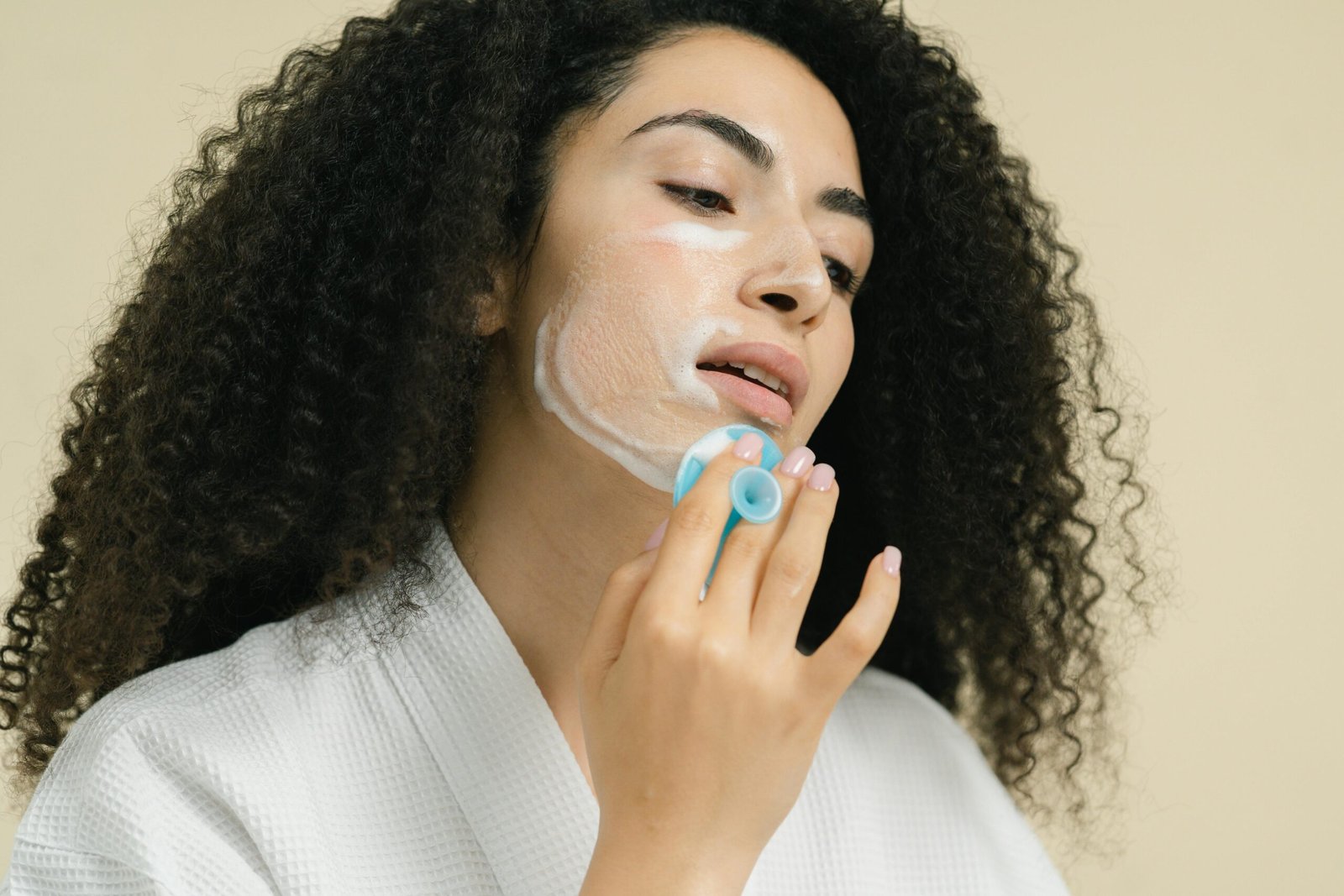August 22, 2025
Why Over-Exfoliating Is Making Your Acne Worse
by Riley Rae

The Truth About Exfoliation and Acne
If you have acne-prone skin, you’ve probably heard that exfoliating can help clear out clogged pores, remove dead skin cells, and make your complexion look smoother. But what if I told you that over-exfoliating might actually be making your acne worse? While exfoliation is an essential part of a skincare routine, too much of it can irritate your skin, strip away its natural oils, and trigger even more breakouts. In this post, we’ll dive into why over-exfoliating can worsen acne and how to properly exfoliate to achieve clearer, healthier skin.
1. What Happens When You Over-Exfoliate Your Skin?
Exfoliating your skin removes the top layer of dead skin cells, helping to promote cell turnover and improve texture. However, if you exfoliate too often or with harsh products, you can disrupt your skin’s natural barrier, causing more harm than good.
- Damaged Skin Barrier: Over-exfoliation strips away the skin’s protective layer, leaving it vulnerable to bacteria, pollutants, and irritants. This disruption can lead to increased redness, sensitivity, and an overproduction of oil, which can clog pores and worsen acne.
- Increased Inflammation: Over-exfoliating can cause inflammation in your skin, leading to a flare-up of acne or making existing acne more pronounced. Irritated skin can also lead to post-inflammatory hyperpigmentation (dark spots) that may take longer to heal.
- Compromised Hydration: When the skin barrier is damaged, moisture is lost more easily, and your skin can become dry and dehydrated. Paradoxically, this dryness can trigger your skin to produce even more oil, contributing to clogged pores and worsening acne.
2. Signs You Might Be Over-Exfoliating
How can you tell if you’re exfoliating too much? There are a few key signs to watch for that indicate you might be overdoing it:
- Redness and Irritation: If your skin feels raw, sensitive, or inflamed after exfoliating, it’s a sign you’re likely over-exfoliating.
- Increased Acne: If you notice more breakouts, cystic acne, or blackheads after exfoliating, it’s a sign your skin is reacting to over-exfoliation.
- Dry or Flaky Skin: Paradoxically, even oily skin can become dry and flaky from over-exfoliating. This results in an imbalance that can lead to more acne.
- Tight or Stinging Sensation: After exfoliating, if your skin feels overly tight or stings when applying products, it might be a red flag.
3. Why Over-Exfoliating Actually Triggers More Acne
You might think that exfoliating more will get rid of acne faster, but that’s not the case. Here’s why over-exfoliation can actually lead to more breakouts:
- Skin Reactivity: Exfoliating too often can make your skin hypersensitive. When your skin barrier is compromised, it becomes more susceptible to environmental stressors like UV rays and pollution, which can trigger inflammation and acne.
- Excess Oil Production: When you strip your skin of its natural oils, it compensates by producing even more oil to replenish itself. This excess oil can clog your pores and create the perfect environment for acne-causing bacteria to thrive.
- Breakouts from Irritation: Over-exfoliating can lead to microtears in the skin, which provide entry points for bacteria. This can lead to more breakouts and worsen the severity of acne.
4. How to Exfoliate Without Making Your Acne Worse
Exfoliating properly can give you the glowing, clear skin you want—without the drawbacks. Here’s how to find the right balance:
- Exfoliate Less Often: For acne-prone skin, aim to exfoliate 1-3 times a week. Over-exfoliating isn’t necessary for healthy skin, and less frequent exfoliation can give your skin time to repair and heal.
- Use Gentle Exfoliants: Instead of harsh scrubs with large, abrasive particles, opt for mild exfoliants like chemical exfoliants (AHAs and BHAs) or enzymatic exfoliants. These can help gently remove dead skin cells without irritating your skin.
- Listen to Your Skin: Pay attention to how your skin reacts after exfoliation. If it feels sensitive or looks irritated, you might want to cut back on exfoliation or switch to a gentler product.
- Hydrate and Protect: After exfoliating, always follow up with a hydrating moisturizer to help restore your skin’s moisture balance. Don’t forget to apply sunscreen daily to protect your skin from UV damage, especially since exfoliating can make your skin more sensitive to the sun.
5. Best Exfoliation Practices for Acne-Prone Skin
Here are some exfoliation tips specifically for acne-prone skin:
- Start Slowly: If you’re new to exfoliating, begin with a once-a-week exfoliation and gradually increase the frequency as your skin gets used to it.
- Choose Exfoliants Wisely: Look for exfoliants with salicylic acid (BHA) if you have acne, as it can penetrate pores and help clear blockages. Glycolic acid (AHA) is great for surface exfoliation and brightening.
- Don’t Combine with Harsh Actives: Avoid using exfoliating scrubs in conjunction with other harsh treatments like retinoids or benzoyl peroxide, as this can increase the risk of irritation and over-exfoliation.
- Patch Test: Always patch-test new exfoliating products to make sure they won’t irritate your skin or trigger breakouts.
Finding Balance for Clearer Skin
Exfoliating can be an effective way to treat acne, but like anything, it needs to be done in moderation. Over-exfoliating can strip your skin of its protective barrier, cause irritation, and ultimately make acne worse. By choosing gentle exfoliants, listening to your skin, and finding the right balance, you can achieve clearer, healthier skin without exacerbating your acne.